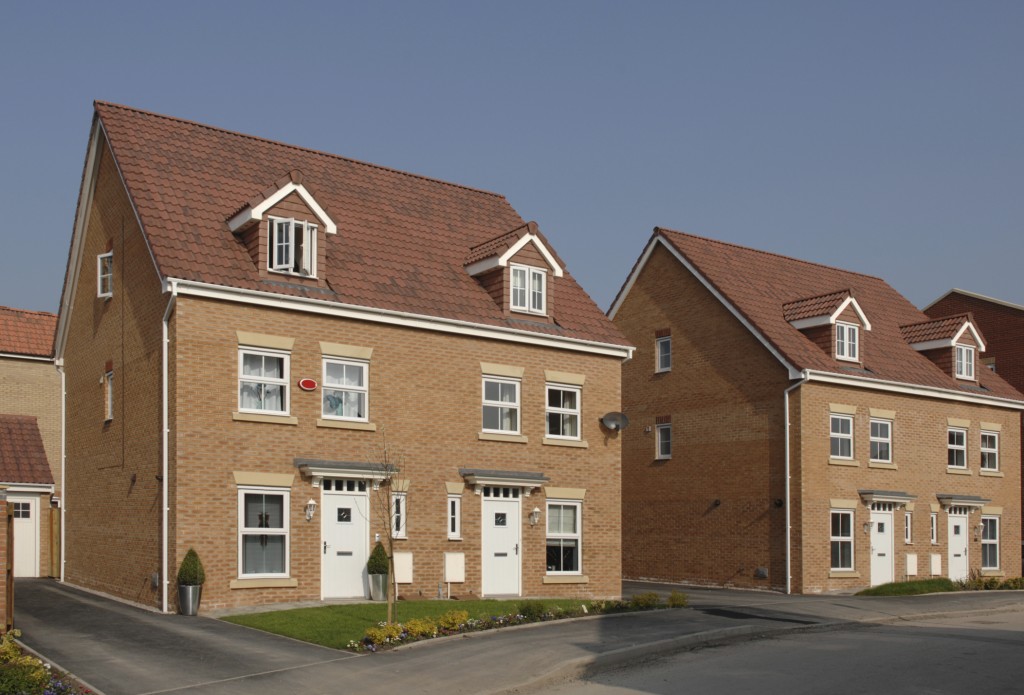The Government has secretly abandoned its target of building one million new homes by May 2020, Labour has claimed. The target of one million homes was announced by David Cameron and then Housing Minister Brandon Lewis in September 2015. However, the National Audit Office inspectors have found that the Department for Communities and Local Government […]
 The Government has secretly abandoned its target of building one million new homes by May 2020, Labour has claimed.
The Government has secretly abandoned its target of building one million new homes by May 2020, Labour has claimed.
The target of one million homes was announced by David Cameron and then Housing Minister Brandon Lewis in September 2015.
However, the National Audit Office inspectors have found that the Department for Communities and Local Government has shifted the time frame from May 2020 to the end of the year.
Shadow Housing Secretary John Healey MP said: “Under the Conservatives we built fewer homes than under any peacetime Prime Minister since the 1920s.
“This damning revelation from the National Audit Office shows that after seven years of failure on housing, ministers are not being straight with the public and moving the goalposts to try to make up for their mistakes.”
The report suggests that the government is set to meet its target of delivering one million new homes.
It said the delivery of the Government’s one million new homes objective by 2020 will require 174,000 net additions each year, although this will be dependent on wider economic conditions.
Last year, 163,940 new homes were built in England. Taking into account conversions of offices to flats, the overall addition to housing stock was approximately 190,000.
The NAO said that need for housing in England had grown faster than its supply has in recent years, with the problem being “particularly acute” in London.
Projections suggest there will be at least 227,000 new households formed each year between 2011 and 2021, substantially higher than the annual average of 166,000 extra homes in England over the last 10 years.
Amyas Morse, head of the National Audit Office, said: “The need for housing in England has in recent years grown faster than its supply, and housebuilding needs to increase across the country. The Government has responded to this by putting in place a range of policies to increase housing supply and home ownership.
“Central to this is an ambition to increase the supply of housing by one million homes by 2020, largely through support to private housebuilders. Delivery of this target will not require a substantial increase in current levels of housebuilding.”
Housing crisis
While Housing has become more affordable for existing homeowners, difficulty in getting on the housing ladder has increased with rising rents and deposits, the report said.
The proportion of owner-occupiers who spend at least a quarter of their disposable income on housing has fallen from 40% to 19% of people with a mortgage.
By contrast, housing has become less affordable for first-time buyers, and social housing rents have been increasing faster than earnings since 2001.
First-time buyers pay deposits of 21% on average, compared with 13% in 1990. The amount that first-time buyers have to borrow to buy their first home has risen from 2.3 times average income in 2000 to 3.2 times income in 2014.
Since 2006, the cost of private rented accommodation has broadly followed changes in earnings across England. However, the opposite has been the case in London, where private rents rose by 32% and average earnings increased by 16%.
Homelessness has also increased over the past five years. At the end of March 2016, 71,500 homeless households in England were in temporary accommodation, up from around 48,000 in 2010-11.
Healey said: “The report confirms that housebuilding is falling well short of demand and that the cost to the public purse of is ballooning, with the temporary accommodation budget growing to cope with rising homelessness.
“But ministers have nowhere to hide. Not only are they not building enough homes, the level of affordable housebuilding has fallen to a 24-year low, homelessness has doubled and the number of young home-owners has fallen by a third of a million since 2010.”
A spokeswoman for the Department for Communities and Local Government said: “Housebuilding has reached its highest level in eight years. We’ve got the country building again with nearly 900,000 homes delivered and helped more than 362,000 households to buy a home since 2010.
“We know there’s more to do – that’s why we’re investing more than £25 billion in housing and have the largest affordable housing programme of any government since the 1970s.
“Ministers will set out further plans to boost housebuilding in our Housing White Paper to make this a country that works for everyone.”
Last year, the Economic Affairs Committee said the Government would need to increase its house building target by at least 50% in order to meet demand.
The House of Lords Select Committee said in its new report Building More Homes that 300,000 homes need to be built each year to tackle the housing crisis.
It suggested that local authorities and housing associations must be freed to build substantial numbers of homes for rent and for sale.














